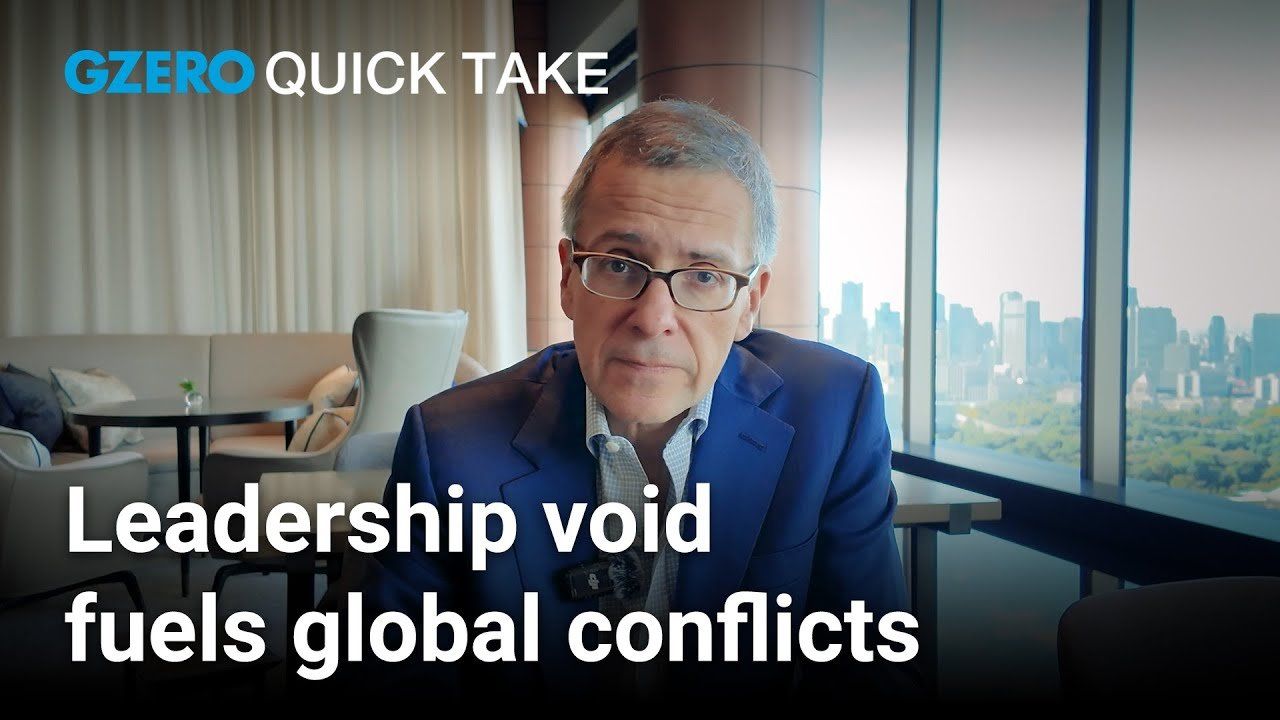
Ian Bremmer's Quick Take: Hi, everybody, Ian Bremmer here, and a Quick Take to kick off your week. I am here in Tokyo, Japan. Just got back from Beijing. Being in this part of the world has me thinking a little bit about the state of our world and leadership, or should I say, the lack thereof. Those of you following me know I talk about a G-zero world, not a G-7, not a G-20, a place where we lack global leadership, and that has been so clear, thinking about the wars that continue, between Israel and Palestine, and now Lebanon, and more broadly in the Middle East, and between Russia and Ukraine, and increasingly NATO in Europe.
I think about the fact that all over the world, everyone wants these wars to be over. They're causing enormous amounts of suffering, displacement of human beings, massive war crimes, but they persist. It's worth thinking about what that means in terms of leadership because when we talk about the Middle East, and Israel-Palestine in particular, the United States is the most powerful ally of Israel, overwhelmingly in terms of its political and diplomatic support, its economic support, technological support, its military aid and training and intelligence. And yet, over the last year, the United States has had virtually no influence in the ability to contain, constrain, or end this war, irrespective of all the suffering.
You can complain about the United States on that with good reason, but then you look at Russia-Ukraine, and you see that over the last three years, China's been, by far, the most powerful friend and supporter of Russia, massive amounts of trade only expanding and dual-use technologies and diplomatic support. Yet, despite that, China has been unwilling to use any influence on Russia to try to bring the war to the end.
Now, to be clear, both the United States and China say all the right things. In Beijing, I was hearing from the leaders that they're friends with the Ukrainians and they maintain stable relations, and of course they want the war over, and they respect Ukrainian territorial integrity. And of course, the Americans support a two-state solution for the Palestinians and want to ensure that they get humanitarian aid and want to see a ceasefire happen, but I mean, the revealed preferences of both of these countries is their willingness to do anything about it is virtually zero. The Chinese don't care about the Ukrainians ultimately. That's what we're learning over the last few years. The Americans don't care about the Palestinians ultimately. That's what we've learned over the last year.
Absent leadership from the two most powerful countries in the world, where do you think we're going to get geopolitically? The answer is, to a much more dangerous place. That's the concern. I don't see that changing, particularly whether we have a Harris or a Trump presidency. I don't see that changing whether we have a Xi or a Xi presidency in China. It's not like they're making any real choices going forward. But look, maybe I'll be surprised. And certainly, it would be nice if no matter who wins, this was a topic of conversation between the Americans and the Chinese. That, "Hey, China. If you'd be willing to do a little bit more with Russia, we'd be willing to do a little bit more with Israel." I mean, frankly, at the end of the day, that's the kind of horse-trading I think we could really use diplomatically. Right now, that's a conversation that hasn't happened yet, but maybe it will.
That's it for me, and I'll talk to y'all real soon.